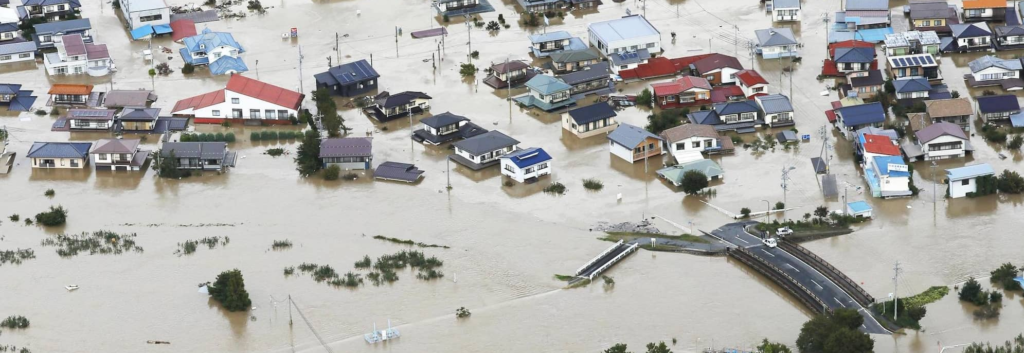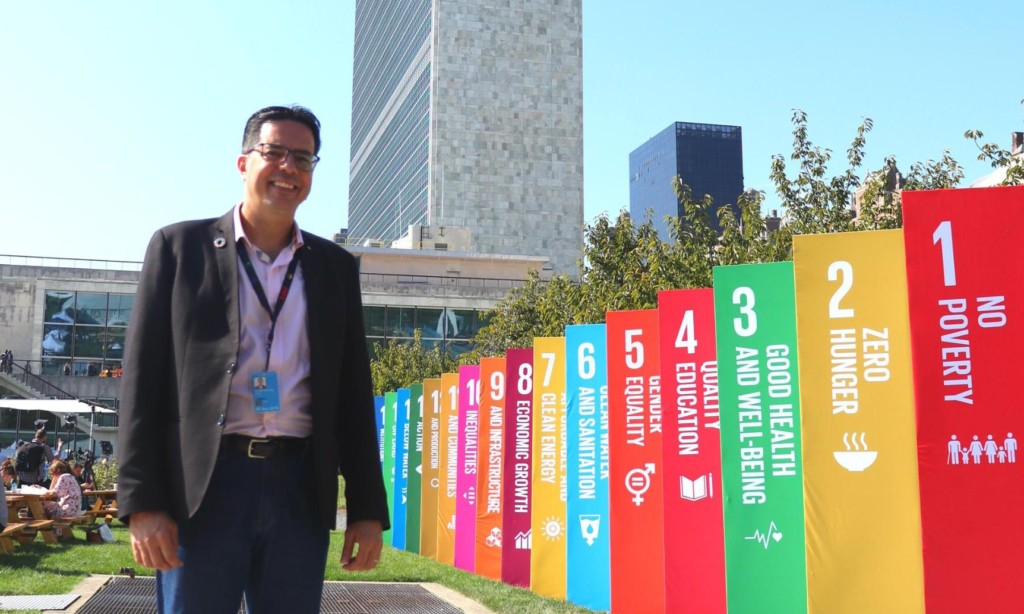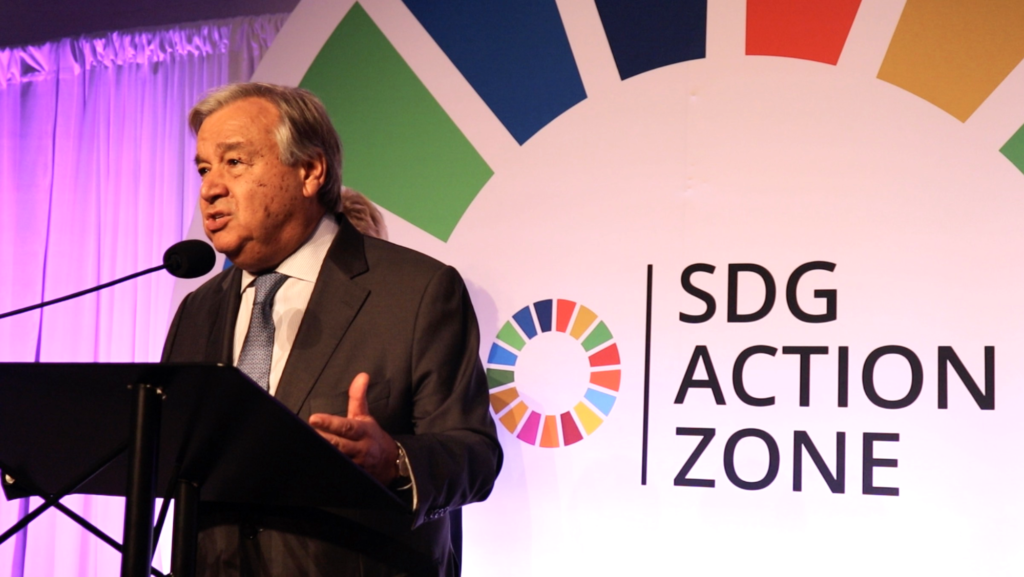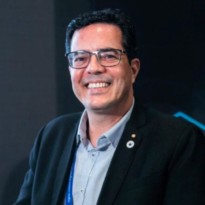This is part 2/2 of this article. To read part 1, click here.
—
Whilst in NY with the UN team during the General Assembly, I witnessed the energy rise and the forming partnerships for the next decade to redesign the planet. If we were to achieve UN’s 17 goals, that would mean that US$12 trillion would be put into the market, creating 380 million jobs.
This past Sunday (October 13th), I woke up in Tokyo with high-volume alert messages on my mobile phone. There were also messages from the city speakers: Hurricane Hagibis had arrived in Tokyo.
Such a deadly phenomenon had only been recorded in Japan in 1958, 61 years ago. My house was in a safe zone, but the ‘Hagibis damage’ already amounts to US$9 billion. More than 80 deaths have been reported; an irreparable loss.
Japan suffered huge losses caused by typhoon Hagibis.
The natural disaster we experienced in Japan last weekend was caused by the climate crisis, scientists are saying. And climate change is a product of humans. Thus, the solution needs to come from us.
First and foremost we need to understand and believe that “the world is on fire“, as Harvard’s Rebecca Henderson wrote in a recent article; “the Earth is burning. We only have a little time to arrest climate change, and if we fail to do so the consequences will be both dire and irreversible.” When we are faced with the recent natural disasters in Japan and other countries, it becomes impossible not to understand what she is saying.
People went to the streets of NYC, demanding action.
Climate issues are not restricted to climate; they generate a spiral of disharmony that affects the economy, nature, business, human relations, governments, and so forth. UN’s SDGs effectively analyse such global problems and seek partnerships for solutions.
Recently, the International Institute for Sustainable Development hosted an Innovation Sprint to test partnership-building for the SDGs using Design Thinking. For them, the 2030 Agenda was specifically designed to show the complexity of sustainable development and the interconnectedness of economics, social issues and the environment.
Designing desirable futures require collective efforts to find innovative solutions.
In their 400-page book, Creating a Sustainable and Desirable Future, Robert Constanza and Ida Kubiszewski gather insights from global thought-leaders comprehensively discussing how to achieve a future that is both sustainable and desirable.
In chapter 6, the authors discuss a scenario in which the year 2050. They believe that, by then, we will be focusing more on the deeper needs of human beings such as happiness, spiritual and emotional fulfilment. They point out that issues such as poverty, equality, gender, access to health care and education will be in the centre of global efforts. They also think that smart cities and strong communities will be no dreams but realities.
An article featured in the book entitled “The New New York: 2050” by Barbara Elizabeth Stewart, predicts a radical change in attitudes, values, and actions by the year 2050. Stweart explains that such a good future can be achieved if we “elucidate the clearest and most straightforward path to our shared vision”.
On this other article “The Way Forward: Survival 2100” also featured in the book, William Reed goes beyond Stwert’s and point and affirms that all countries need to “formally recognise that unsustainability is a global problem” so that they can find the best, most innovative solutions for 2100 now.
As mentioned before, the United Nations estimates that by achieving their SDGs, more than 380 million jobs will be created. According to KPMG, over 2,500 companies now include the SDGs in their annual sustainability reports.
Working for the SDGs during the UN General Assembly 2019 in NYC.
The efforts to achieve these goals are increasing. For a week, I worked as a content creator in the UN SDG Action Zone; it was one of the richest experiences of my life. At UN Headquarters I witnessed over 300 experts debating solutions to global problems and the commitment that will be at the centre of decisions over the next ten years: fully focus on SDGs to guarantee that the year 2030 will be good for all.
I believe that that one week created the foundations for a desirable 2030, 2050, 2100. Google was there, debating the advancement of global goals through artificial intelligence. Bill Gates announced he’d invest $200 in Pakistan, to help its poverty. Presidents, prime ministers, queens, kings gathered to launch incredible initiatives for gender equality, mental health, innovation, education, and climate. People were not only debating, but they were acting, working towards a desirable future.
UN Secretary-General António Guterres at the SDG Action Zone: “We need to do more, we need to act now”.
The opportunities are there for people and companies that aim to innovate. The present is fruitful for those who want to help the environment and succeed in business.
Japanese philosopher Daisaku Ikeda – whom I respect as a mentor – believes that we must urgently cultivate the wisdom to achieve a sustainable future and peaceful global society. He believes that human-centred innovation will increase “unwavering confidence in the limitless potential and inherent dignity of each individual”.
—
Follow us on social
Instagram – Facebook – LinkedIn – Youtube
How Can We Help?
- For training and Innovation Journeys in your company: check out our in-house course offering.
- For upcoming courses in your region: visit our website.
- For upcoming events in your region: look at our event calendar.
- If you have a special project and would like to use Echos’ consultancy services: send us an email.
- Want to speak to a real person? Call us on 1300 502 006












